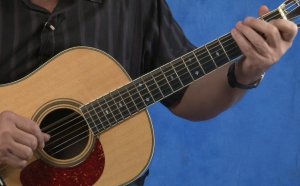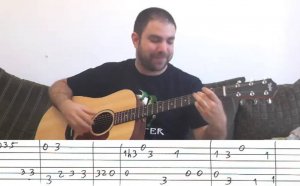
Piano music lessons for Beginners
 Teacher Dana S.
Teacher Dana S.
Location: Muncie, IN
Price: $25 for a 30-minute lesson
Beyond the city or area you’re in, the price can also vary depending on where exactly you’re taking the lessons. You have three options for this:
• You can travel to your teacher for your lessons
• Your teacher can come to you at your home
• You can connect via video chat for live, online lessons
Traveling to your teacher’s studio is usually more affordable than having your teacher come to you — some teachers may charge for travel time and/or mileage. Online lessons are sometimes priced the lower end of the scale, but can vary depending upon your teacher’s level of expertise.
Here are some examples of teacher pricing based on location:
Teacher Lily A.Location: Columbia, MD
Price: $45 for a 30-minute lesson at teacher’s studio
$50 for a 30-minute lesson in your home
$50 for a 30-minute online lesson
For most new students, a 30-minute weekly lesson is a great starting point. As your playing progresses, however, most students benefit from longer lessons, such as 45 minutes or an hour. Your teacher will be able to recommend a good length for you, and of course, as you increase your lesson length your price will increase.
Here is an example of pricing based on lesson length:
Teacher Brian P.Location: Culver City, CA
Price: for a 30-minute lesson
for a 45-minute lesson
for a 60-minute lesson
 Another factor that can affect piano lesson rates is your teacher’s level of expertise or experience. Younger teachers or teachers who specialize in beginning students will often charge less. As your playing level advances and you need a teacher with higher level experience, you can expect to pay more per lesson.
Another factor that can affect piano lesson rates is your teacher’s level of expertise or experience. Younger teachers or teachers who specialize in beginning students will often charge less. As your playing level advances and you need a teacher with higher level experience, you can expect to pay more per lesson.
As you improve, you might also become interested in a specific area of study, such as classical music or jazz improvisation. Teachers who specialize in certain genres or techniques, or who have had received training in a certain teaching method (such as the Suzuki method), can command a much higher price.
How Much Are Piano Lessons for Kids?
While the cost of piano lessons for kids is sometimes lower than lessons for adults or more advanced players, it’s important to keep in mind that you shouldn’t choose the least expensive option on principle. The concepts learned might seem simple, but it takes a certain personality (and level of patience!) to get through to kids, especially those who have trouble focusing.
To help you find the right teacher for your child, consider the following as you narrow down your options:
- Have they had success with similarly aged children?
- What is their experience like, and how long have they been teaching?
- Do they use any particular method, such as the Suzuki Method, for working with beginners?
- What level of involvement are you able to commit to your child’s lessons, and what do they expect from you?
 You may also want to sit down with your child’s teacher before the first lesson to get on the same page: discuss your expectations, and what level of involvement you can commit to. Finding the right teacher match is particularly important for young learners, and will ensure you don’t waste time or money with a teacher that doesn’t mesh well with your child.
You may also want to sit down with your child’s teacher before the first lesson to get on the same page: discuss your expectations, and what level of involvement you can commit to. Finding the right teacher match is particularly important for young learners, and will ensure you don’t waste time or money with a teacher that doesn’t mesh well with your child.
Payment Options
Most teachers and studios will require payment in advance, often on a month-to-month basis. Other teachers or studio may offer discounts for lesson packages, if you’re able to commit for a longer time frame. Students booking lessons through TakeLessons.com, for example, can sign up for Monthly, Quarterly, Semester, or Annual Plans. All lessons are paid for in advance and are billed automatically, in order to reserve your time slot and make payments easy and convenient.
Whether you’re working with a music studio or an individual private teacher, make sure you’re aware of the payment policies from the beginning so nothing comes as a surprise. It’s also a good idea to familiarize yourself with the rescheduling or cancellation policies; some teachers require a 24-hour notice to be eligible for a reschedule, so knowing this beforehand will help you avoid paying for lessons you can’t attend!
What about books, materials, or incidental costs?
As you progress through your lessons, keep in mind that you may come across incidental costs along the way. Piano books and materials are the obvious ones, since you’ll always need new music and workbooks. Some teachers provide these for students or have copies available to borrow, but most will give you a list of certain books and ask you to purchase them on your own. You can also find several websites for finding free piano sheet music online. Extra materials may include:
- A blank journal or composition pad for taking notes
- Pencil (this is a must at your lessons!)
- Metronome
- Piano tuning services (recommended at least twice a year)
As you can see, there are several factors that can affect the pricing of piano lessons. Do your research and take some time to think about which options are best for you – and what will keep you motivated to learn! With the right set-up and an amazing teacher by your side, you’ll be primed for a great experience.
YOU MIGHT ALSO LIKE
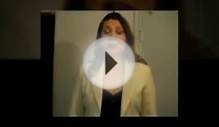
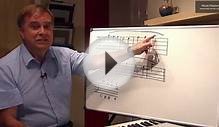
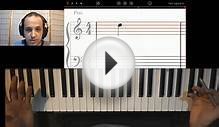
Share this Post
Related posts
Acoustic Blues Guitar Lessons for Beginners
Every guitar player experiences a major turning point early on in their education. After the requisite, and often times…
Read MoreYouTube Guitar lessons for Beginners acoustic
How to Get the Most from Your YouTube Learning Experience Want to improve your playing, but don’t have money or time to dedicate…
Read More
